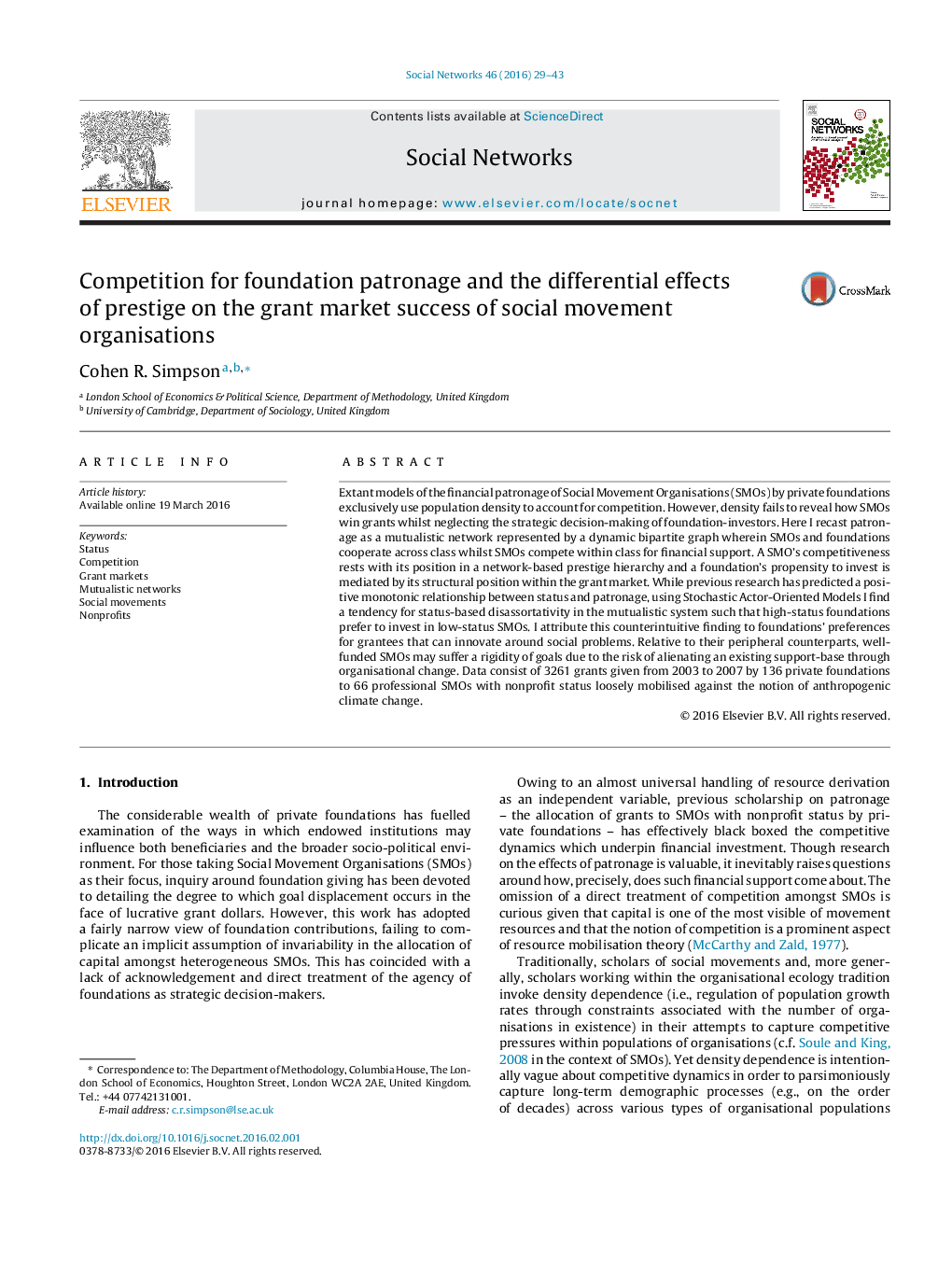| کد مقاله | کد نشریه | سال انتشار | مقاله انگلیسی | نسخه تمام متن |
|---|---|---|---|---|
| 1129248 | 1488853 | 2016 | 15 صفحه PDF | دانلود رایگان |
• The grant market is reconceptualised as an evolving bipartite graph.
• Dynamics are driven by network-based status hierarchies of grantors and grantees which operate in tandem.
• The effect of grant-market status on the likelihood of investment varies across the foundation population.
• High-status foundations prefer to invest in low-status SMOs, indicated by status-based disassortativity.
• Predictions of positive monotonic returns to status are too simplistic.
Extant models of the financial patronage of Social Movement Organisations (SMOs) by private foundations exclusively use population density to account for competition. However, density fails to reveal how SMOs win grants whilst neglecting the strategic decision-making of foundation-investors. Here I recast patronage as a mutualistic network represented by a dynamic bipartite graph wherein SMOs and foundations cooperate across class whilst SMOs compete within class for financial support. A SMO's competitiveness rests with its position in a network-based prestige hierarchy and a foundation's propensity to invest is mediated by its structural position within the grant market. While previous research has predicted a positive monotonic relationship between status and patronage, using Stochastic Actor-Oriented Models I find a tendency for status-based disassortativity in the mutualistic system such that high-status foundations prefer to invest in low-status SMOs. I attribute this counterintuitive finding to foundations’ preferences for grantees that can innovate around social problems. Relative to their peripheral counterparts, well-funded SMOs may suffer a rigidity of goals due to the risk of alienating an existing support-base through organisational change. Data consist of 3261 grants given from 2003 to 2007 by 136 private foundations to 66 professional SMOs with nonprofit status loosely mobilised against the notion of anthropogenic climate change.
Journal: Social Networks - Volume 46, July 2016, Pages 29–43
